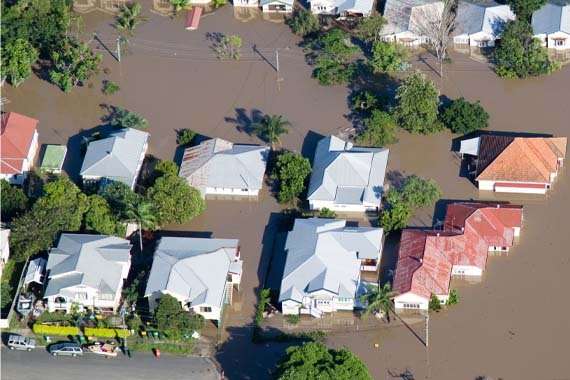Preparing for he Unimaginable
Description
The 2019 flood was an unprecedented natural disaster after a slow-moving monsoon forced record-breaking rain over the Townsville area. It was the largest flood event on record that occurred in North Queensland, and the impact was swift and extensive, affecting communities across the region. In response, Townsville researchers across four discipline areas saw a need for organisational response guidelines in the prospects of future disaster response.
Partners
Commonwealth and Queensland Government
Impact
The project results have been published in a book titled Preparing for the Unimaginable: Guidelines for Organisational Response and Staff Support Before, During and After Disaster, which is publicly and freely available for businesses in both electronic and print versions.
Dr Adele Baldwin, Dr Paul Duckett, Dr Anne Ferguson, Ms Joanne Harding, Associate Professor Clare Harvey, Dr Bree Kitt, Ms Stephanie Pasewaldt, Dr Robyn Preston and Dr Naomi Ralph
Natural disasters are happening with increased frequency and ferocity that unleashes extreme weather on communities, but what happens when disaster does strike?
While you can't stop a natural disaster in its tracks, a CQUniversity research team based in Townsville have been working with Queensland regional communities to understand the impact of disaster events and how they can be managed in the future.
Led by Dr Adele Baldwin, the team looked at ways employers could support their staff before, during and after disaster events to develop guidelines to help organisations provide the best support for their staff. The project specifically examined how people experienced Townsville's devastating 2019 floods.
'The Townsville floods was one of the worst natural disasters ever to impact the region. It highlighted to us the need for further research and investigate strategies on how to help prepare both business and individuals for these situations,' says Dr Baldwin.
'We saw first-hand how CQUniversity Townsville campus employees supported each other and received support from our colleagues at other campuses, but in both the literature and disaster management guidelines, there was little information about employers' support for employees or colleague support.'
While the researchers initially undertook a small internally funded project titled A sting in the tail, an initiative jointly funded under the Commonwealth/State Disaster Recovery Funding Arrangements allowed for further research in the wider community- specifically in Townsville City Council and McKinlay Shire Council areas.
The research consisted of two phases: social media analysis and local stakeholder interviews.
'We can hear things anecdotally, but unless we research things systematically, we cannot make an impact on policy.
'We began by looking at public social media postings during and after the floods. These publicly available social media sites gave us an insight into how people shared their experiences of the event. This included Facebook, Instagram, Twitter and LinkedIn.
'Secondly, we interviewed individuals and some small groups to hear about their experiences firsthand. We interviewed 20 people in the McKinlay region and 15 people in Townsville who all had direct experience of the flood event.'
Dr Baldwin believes the new evidence-based policy and guidelines will inform future efforts for employers and communities, with findings offering interesting key insights specific to the Townsville and McKinlay regions.
'People mostly talked about their loss in relation to what other people had experienced. Sometimes people downplayed the impact the flood had on them by telling us about how others were more seriously affected. Irrespective of the level of destruction and difficulty experienced by the participants, everyone reported some degree of feeling anxious about such a disaster happening again.
We also found leaders emerged during the flood event, and these people were not necessarily in leadership positions. They were well-connected with members of their community, were respected and able to mobilise others to help their community get through the flood.'
Looking to the future, the project team have published the research results in a book of guidelines which was launched in June 2021 and is being disseminated to businesses across the state to inform future disaster efforts in North Queensland.
'Overall, these guidelines reflect that loss is a social rather than an individual thing – leaders emerge from places we perhaps don't always expect and that it's important we fully know the people we are trying to help during times of disaster.'
Connect with CQUniversity
At CQUniversity, we know the value of our connections locally and around the world. Our partnerships help us create opportunities, deliver solutions and change lives. From time to time, we share our Connections Count update, where we share our highlights, including research impact stories like the ones below. Sign up to become one of our valued connections.

